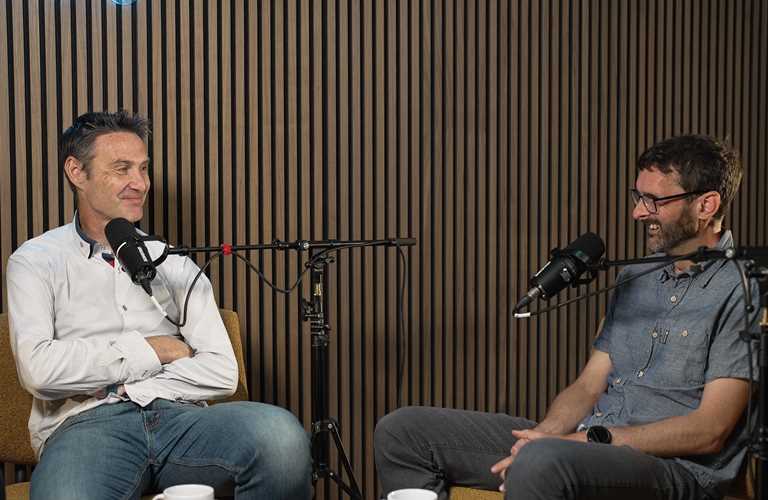Top Tips for Start-Up Marketing & PR
When launching your start-up you might think that it means starting from scratch with your marketing and PR, right?
Wrong! Through the process of turning your business idea into reality you will have been building your brand identity to help you communicate the story, purpose and key messages of your business. This is your number one marketing tool and will set the foundations for your strategy, launch plans and campaigns going forward.
'Building a stronger brand should start with why you matter to customers, and build up to a larger visual and verbal brand environment to play with... When you build an arsenal of design, on-brand marketing messages, and actionable guidelines, crafting a marketing funnel becomes a breeze.'
Elizabeth Hague, Co-founder of Wildcat Echo, a branding & marketing agency.

So here are some tips to help you work out your strategy for marketing and PR before you launch your business.
Tip 1 - Identify your key message
What would you like to communicate to your customers and the wider community? As a new business, you will want to build some brand awareness about who your company is, what products and/or services you provide and why people should care. See our Build your Brand article for further guidance.
Tip 2 - Set out your objectives
It might sound similar to identifying your key message, but separating it out is important. Objectives can be tracked and evaluated to enable you to determine whether your marketing strategy is working. Some examples include increased number of visits to your website, amount of time spent on your website, register of interest/enquiries, number of sales conversions, positive reviews and feedback. Be as specific as you can.
Tip 3 - Know your customer
It is all very well saying that you have identified your target market, but do you know them personally? A great way to do this is to develop ‘personas’ of your ideal customers, helping you to understand their wants and needs, as well as how your business is solving a problem for them. Find out more about persona creation here. Knowing this will help you tailor your tone of voice and indicate suitable channels of communication. “Customers want marketing to talk to them, not at them.” says Elizabeth Hague, Co-founder of Wildcat Echo, a branding & marketing agency in this article for Foundr.

Tip 4 - Pick your communication channels
Where are your customers? Different communication channels will have reach and appeal to a different target market so figuring out what types of media your ideal customers are digesting most is essential. There is little point spending money advertising in a local paper if your products are aimed at tech-savvy people in their twenties. To get you started here are some of the marketing and communication channels for you to consider.
Traditional media:
- Print advertising (newspapers, magazines, yellow pages)
- Radio advertising
- TV advertising
- Direct mailers
- Billboards and banners
New media:
- Websites and blogs
- Search engine optimisation and AdWords
- Social media (Facebook, Instagram, Twitter, LinkedIn, YouTube, etc.)
- Email marketing
Extras:
- Networking
- Sponsorship
- Event marketing
- Publicity stunts
Quite often a combination of different media is required and this could include paying for advertising space and promotions, as well as proactive PR coverage.
Tip 5 - Allocate budget
You might be a bootstrap start-up, but failing to allocate adequate budget to your marketing and PR needs will ultimately lead your business to fail. That being said there are many ways you can make a little bit of budget go a long way if you know how. Here are some suggestions.
Public Relations (PR). Work out what is newsworthy - your unique brand story should be a newsworthy item (especially to your customers), details of how you are going to solve a problem for them. When you write a press release to send to PR agencies, think of from a journalistic perspective, rather than as a sales pitch. Can you relate the story to any current events, research pieces or regulatory reviews? Once you have a press release, you need to identify individuals from specific media companies to contact directly, persistence is key here, so while it might not cost you any money if you get featured, it does take time.
Social media. You can set up free social media accounts and reach a huge online audience if you do it right, but you are also competing for attention with a lot of other things, not just in your market but news, entertainment, family and friends and much more. It can easily suck a lot of your time having to constantly post updates, answer enquiries and monitor analytics to see how your activities are performing. If you are paying to sponsor posts or run promotions make sure you define your audience so the right people see it. Quality is definitely better than quality here and don’t forget your brand consistency.
Networking. This is especially crucial for a local business. Word of mouth is a highly effective marketing channel in Guernsey so making sure that you are attending relevant events and meeting new people are great ways to promote your business. For more information on this topic check out our Growing your Network article here.
Please remember that just because a communication channel appears cheap, it doesn’t mean it is cost-effective, don’t forget to refer to your customer persona and which channels they are on for guidance.


